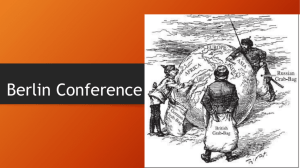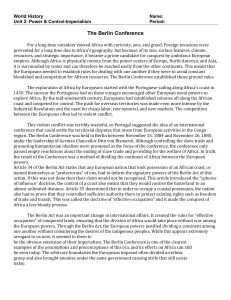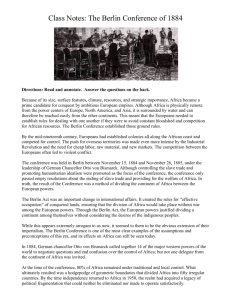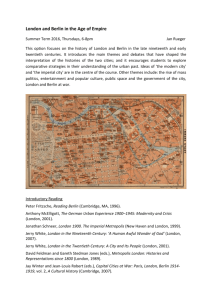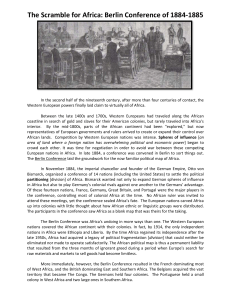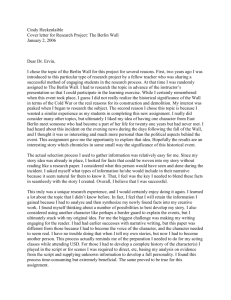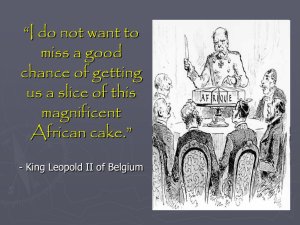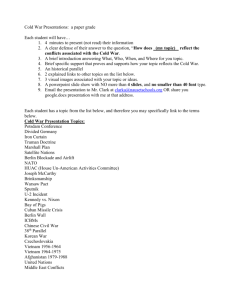Berlin Conference- 1884
advertisement
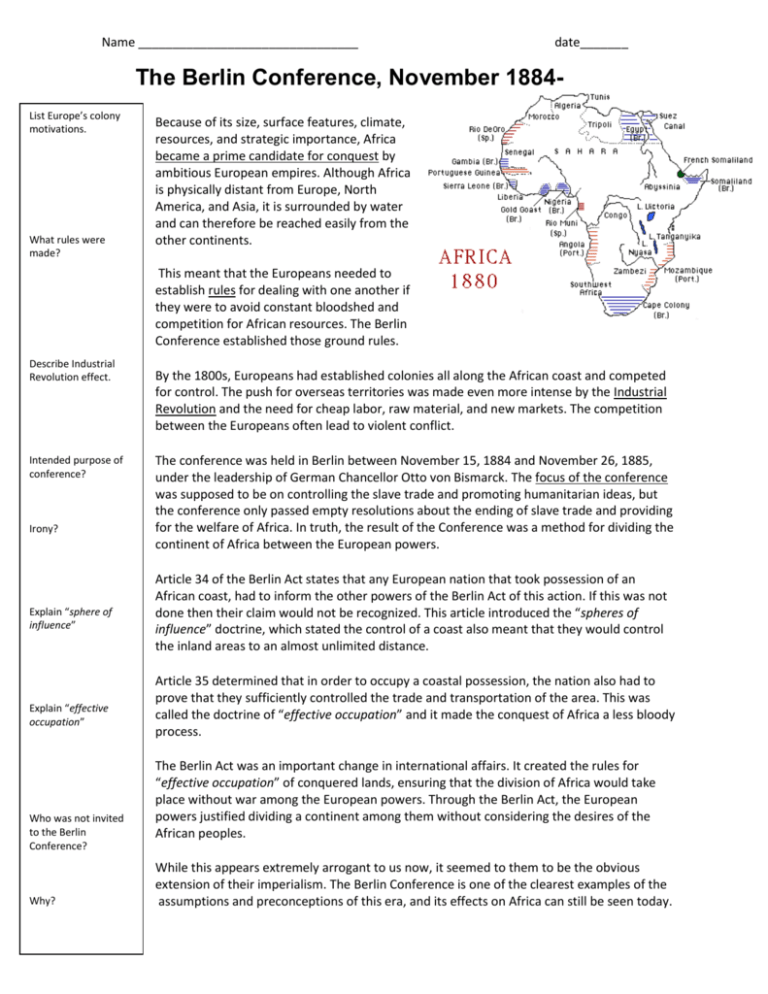
Name ________________________________ date_______ The Berlin Conference, November 1884List Europe’s colony motivations. What rules were made? Because of its size, surface features, climate, resources, and strategic importance, Africa became a prime candidate for conquest by ambitious European empires. Although Africa is physically distant from Europe, North America, and Asia, it is surrounded by water and can therefore be reached easily from the other continents. This meant that the Europeans needed to establish rules for dealing with one another if they were to avoid constant bloodshed and competition for African resources. The Berlin Conference established those ground rules. Describe Industrial Revolution effect. Intended purpose of conference? Irony? Explain “sphere of influence” Explain “effective occupation” Who was not invited to the Berlin Conference? Why? By the 1800s, Europeans had established colonies all along the African coast and competed for control. The push for overseas territories was made even more intense by the Industrial Revolution and the need for cheap labor, raw material, and new markets. The competition between the Europeans often lead to violent conflict. The conference was held in Berlin between November 15, 1884 and November 26, 1885, under the leadership of German Chancellor Otto von Bismarck. The focus of the conference was supposed to be on controlling the slave trade and promoting humanitarian ideas, but the conference only passed empty resolutions about the ending of slave trade and providing for the welfare of Africa. In truth, the result of the Conference was a method for dividing the continent of Africa between the European powers. Article 34 of the Berlin Act states that any European nation that took possession of an African coast, had to inform the other powers of the Berlin Act of this action. If this was not done then their claim would not be recognized. This article introduced the “spheres of influence” doctrine, which stated the control of a coast also meant that they would control the inland areas to an almost unlimited distance. Article 35 determined that in order to occupy a coastal possession, the nation also had to prove that they sufficiently controlled the trade and transportation of the area. This was called the doctrine of “effective occupation” and it made the conquest of Africa a less bloody process. The Berlin Act was an important change in international affairs. It created the rules for “effective occupation” of conquered lands, ensuring that the division of Africa would take place without war among the European powers. Through the Berlin Act, the European powers justified dividing a continent among them without considering the desires of the African peoples. While this appears extremely arrogant to us now, it seemed to them to be the obvious extension of their imperialism. The Berlin Conference is one of the clearest examples of the assumptions and preconceptions of this era, and its effects on Africa can still be seen today. 1. According to the map, how many African nations managed to resist colonization? Which ones were they? 2. Which European nation had the largest holdings in: West Africa _______________ East Africa ________________ South Africa _______________ 3. Once Europeans were in control of Africa think of 3 ways they impacted Africa and the people living there? 1) ______________________ 2) _______________________ 3) ______________________ 4. Which natural resource is most common in Southern Africa? 5. Which areas and resources do you think it would be the hardest for Europeans to reach? Why? 6. Which two resources in Africa do you think are the most valuable today? a) b) Based on this handout, explain the economic factors that motivated Europe to obtain colonies in Africa?
